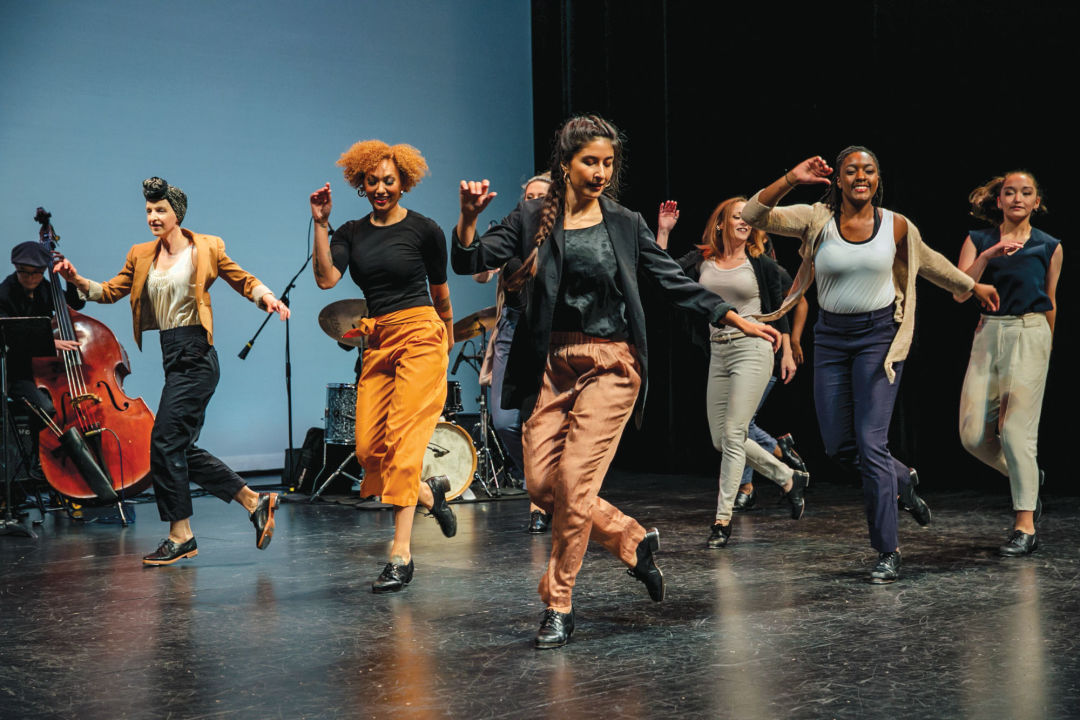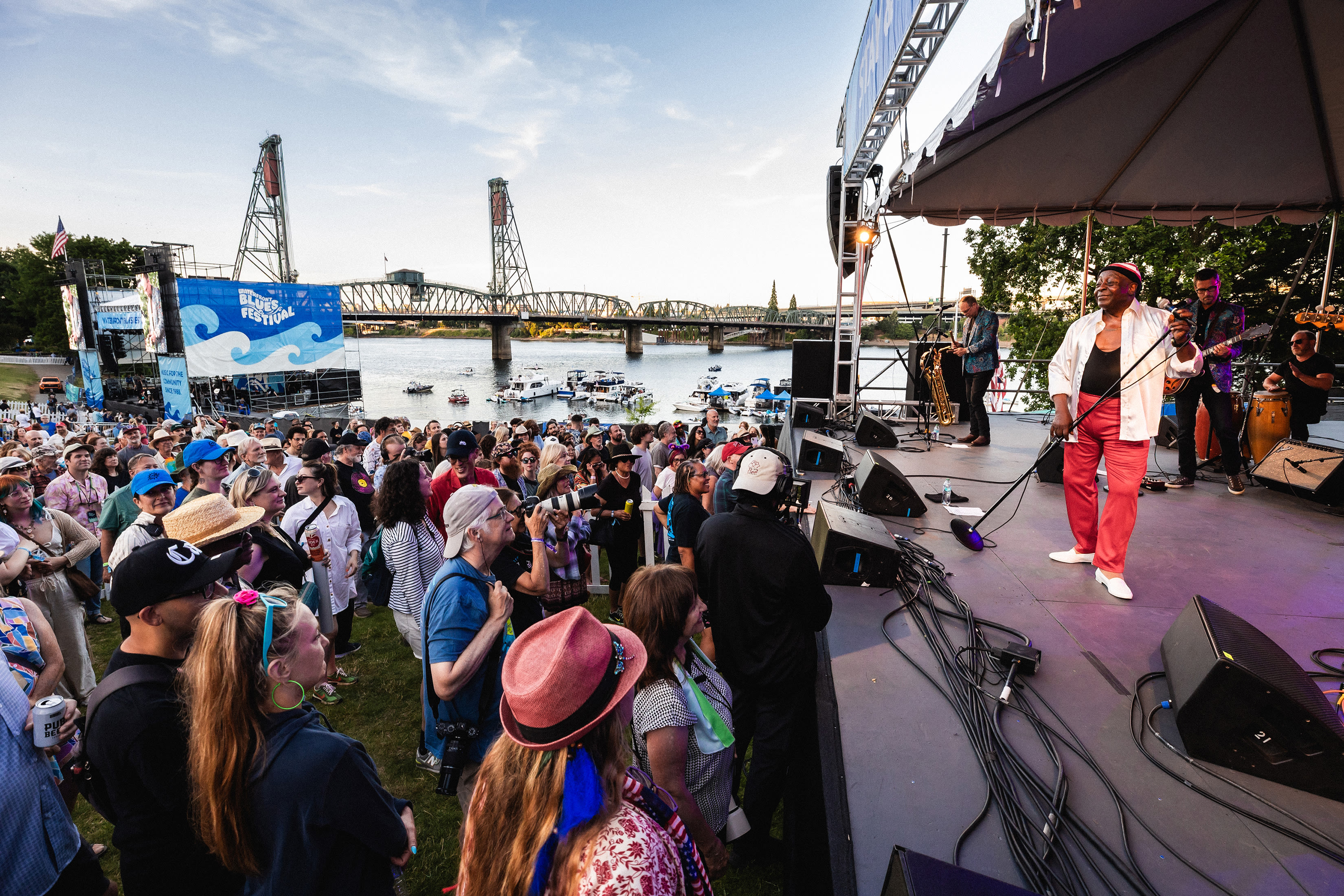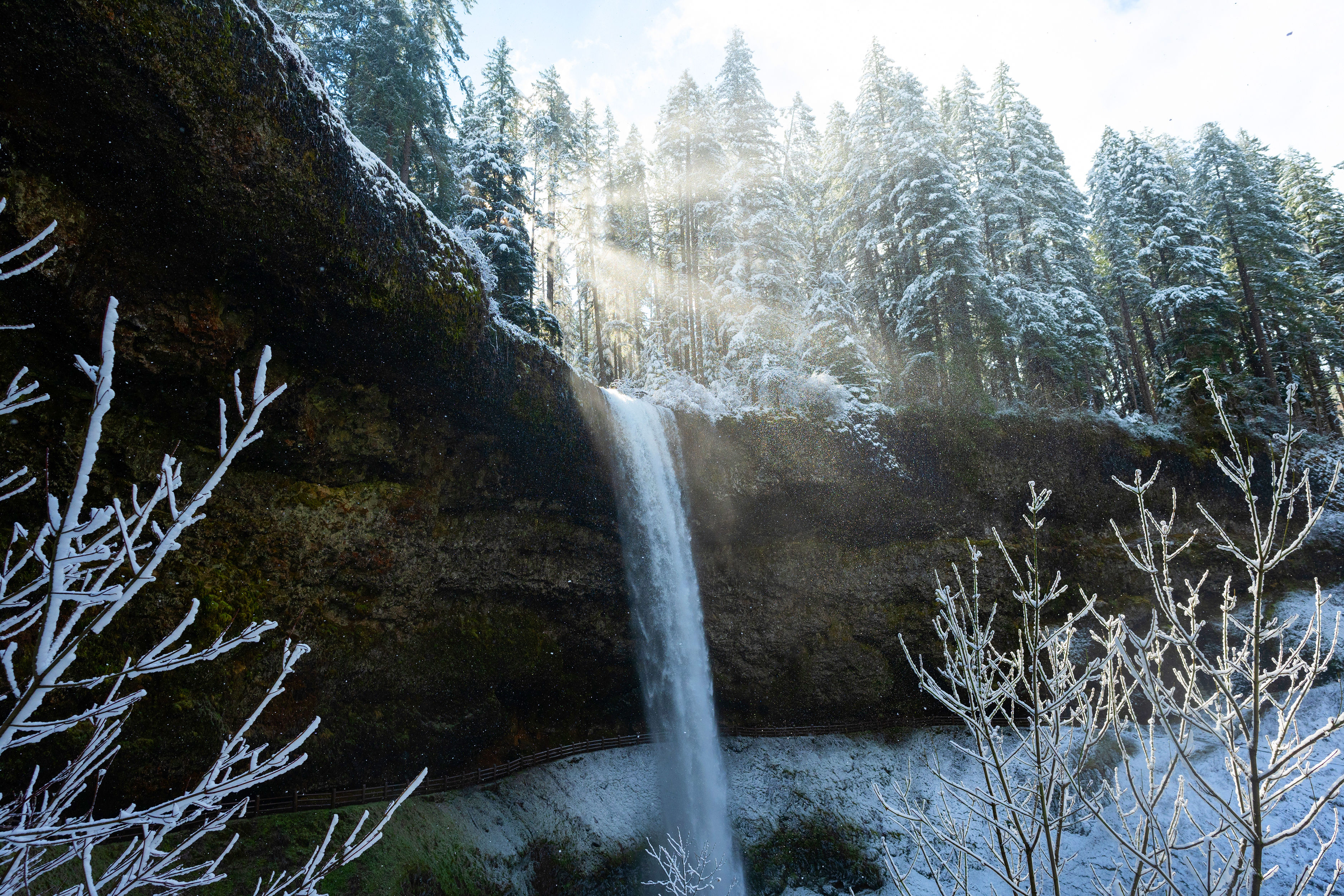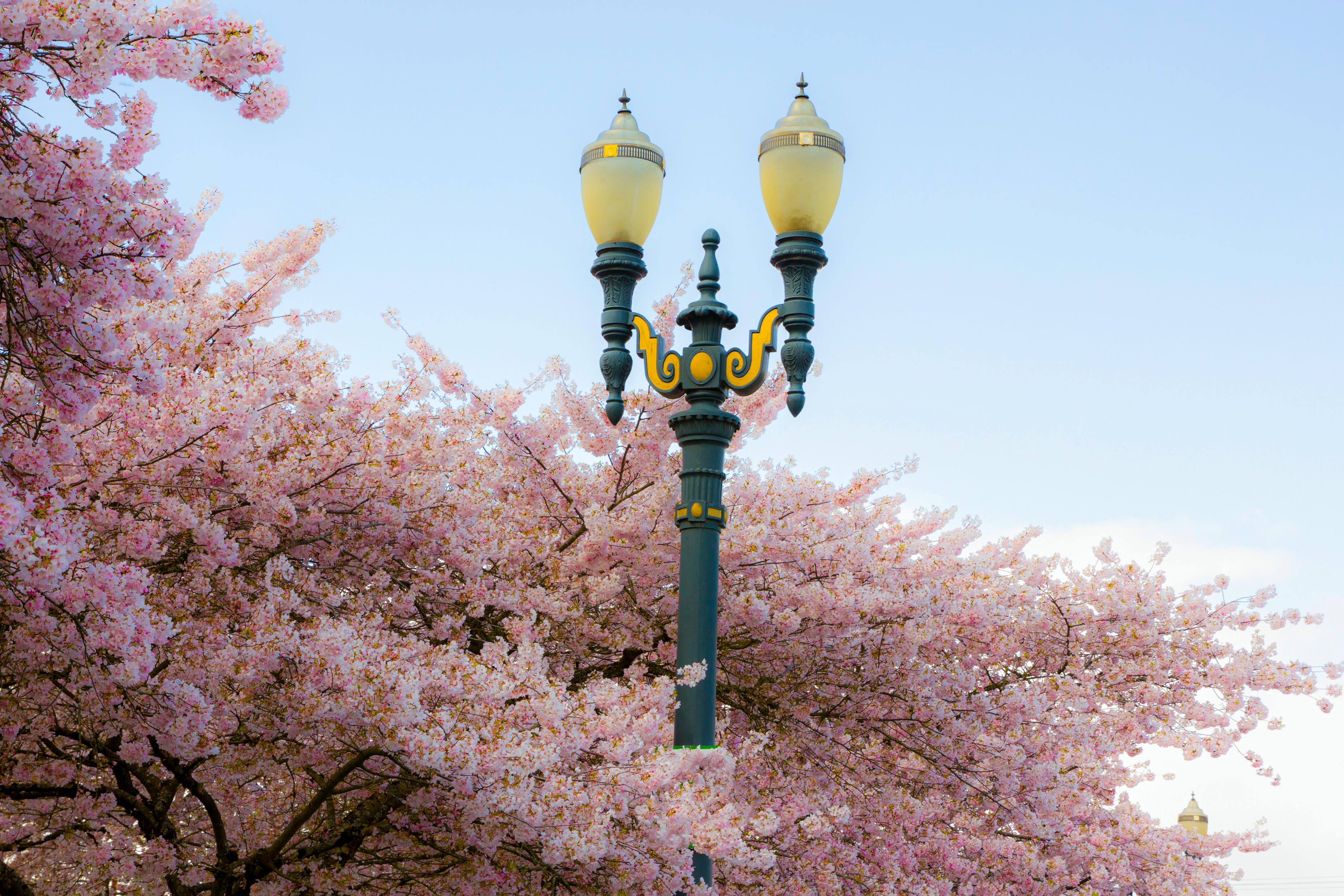Don’t Listen to Dance Snobs—Tap Still Matters

The Portland Tap Company made its debut last fall with a piece inspired by Neil Gaiman's short story "The Man Who Forgot Ray Bradbury."
Image: Courtesy Tojo Andrianarivo
In early-’90s Portland, when Karida Griffith was in high school, she took a tap class taught by a legend. Dancer Dianne Walker was fluid and elegant, Griffith remembers, and she dispensed wisdom between the scuffs and stomps.
“I remember desperately wanting her approval,” says Griffith, now 42. “At the end of class, she looked me up and down and just said, ‘Very nice.’ That was all I needed. I was floating out of class.”
Griffith made an impression. More than a year later, when Walker needed to fill roles in the touring Broadway production of tap-fueled musical revue Black and Blue, she remembered a remarkable pair of dancers in Portland: Griffith and her friend, Kamaria Kyle. The two, who had just begun their freshman year at the University of Oregon, promptly packed up their dorm rooms and joined the show’s European tour.
These days, Griffith—who went on to become a Rockette and dance with Cirque du Soleil, along with several professional tap companies—has joined Walker in the cozy ranks of the country’s top tap teachers. And they’ll be side by side this May, at the fourth annual Portland Tap Dance Festival, an event that brings together about a dozen faculty and a couple hundred students from across the country for master classes, improv contests, and public performances. It's three days devoted to a singular but oft-overlooked dance form. Ballet has its jaw-dropping jetés, and contact improv its sweaty, intimate contortions, but tap makes its own music. Performed by dancers of all shapes and ages, it also just gets into your bones—if you’ve met a lapsed tapper, you’ll know them to bust out a buffalo or Maxie Ford while price-comparing at Whole Foods (or maybe that’s just me).
Portland had a tap festival several decades ago—that’s where Griffith awed Walker—but the current iteration is the creation of three 20-somethings who grew up tapping in Portland. Among the trio is Kelsey Leonard, who helped launch the fest while at New York University, working towards her master’s degree in tap dance. (“There’s a handful of us in the entire country with advanced degrees in tap dance,” says Leonard, whose research focused on tap and American racial politics.) For her, the festival is part of the perpetual fight for recognition for a dance form that was largely created by African slaves.
“Because it’s a black art form and [originally] a street art form, it’s been snubbed academically and within dance circles,” she says. “You get the ballet snobs who are like, ‘Oh, tap.’” (Leonard and her co-organizers, all of whom are white, take pains to hire racially diverse faculty for the fest.)
Perhaps because of that battle for legitimacy, tap dancers speak about their teachers with intense gratitude, even reverence. Talking with tappers, you get the sense that no one in the tap world is more than a degree or two removed. That’s certainly the case for Portland’s tap community, which Leonard describes as “a little underground”—adult classes are in short supply—but fiercely dedicated.
Here, the family tree almost always points to storied dance teacher Sally Mack, now 80 and self-described as “semi-retired.” For 25 years, Mack ran a studio on Northeast Sandy in the old Portland Bottling Company building (long-timers will remember its art deco 7Up sign, which was repainted in 2002). There, she taught Griffith and Kyle. “They were so talented,” Mack recalls. “I just went gangbusters with them because they were so easy to teach.”
Another of Mack’s students was Terry Brock, 66. Brock, who’ll also teach at May’s festival, credits Mack with preparing her for a professional dance career. Her first paid gig? Performing in a Vegas-style revue at Old Town’s long-defunct Roaring 20s Room as a high-school student in the late ‘60s. “I was a cheerleader by day and this dancing girl by night,” says Brock. The show got many of its costumes from the Ice Capades; Brock wore one such number, with “this big pink ruffle on my rear end,” for a tap solo.
Tastes have changed in the last half-century, but don’t dare tell a tap dancer the form is withering. Take Savion Glover’s stupefying technical prowess, or the full-body whirlings of Dorrance Dance, a New York-based company with whom Griffith has performed. Locally, Leonard has started her own group, the Portland Tap Company, which debuted last fall and will perform again during the festival. Another company member has designs on a new monthly tap jam, an informal evening of improv with a live jazz band.
“You get Nigel Lythgoe on So You Think You Can Dance saying it’s a dying art form,” Leonard says, rattling off a list of tap festivals: Detroit, Arkansas, New Orleans, Croatia, Stockholm, Brazil. “It’s so not. It’s everywhere.”
Portland Tap Dance Festival
May 24–26, DoubleTree Hotel




